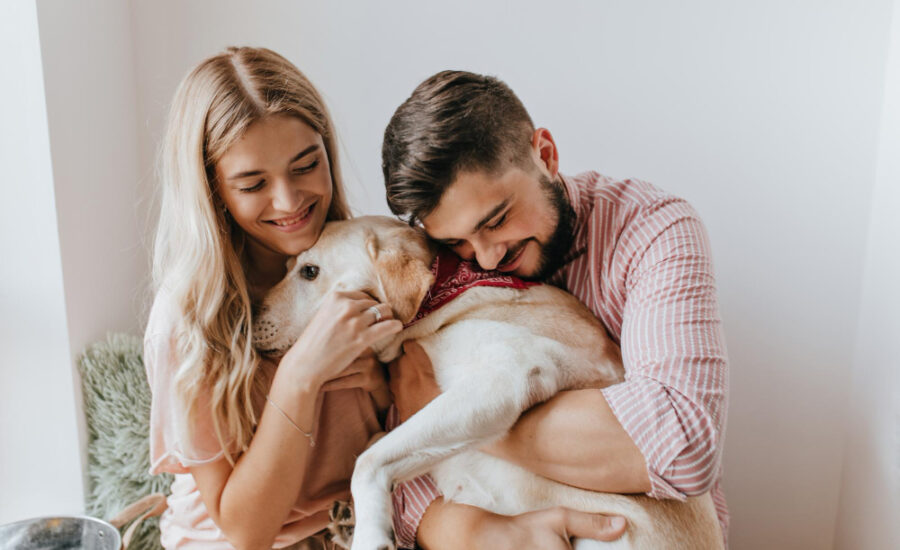At Douglas Hall Kennels, we have helped owners all over the UK to find a puppy, and as a result, we are frequently asked how to socialise their new puppy.
Your new dog is a social animal, and socialising is essential for their healthy development.
We’re going to cover everything you need to know about socialising your puppy, from starting early to enrolling in puppy classes, using positive reinforcement, being patient and gentle, monitoring progress, and adapting to common issues.
Importance of Socialising a Puppy
Socialisation is essential for your puppy’s development. It teaches them how to interact with other dogs and people and can help in the prevention of behavioural problems later in life.
Starting Early
It is best to start socialising your puppy as soon as possible because your puppy will be more receptive to new people, places, sounds and smells while they are still young.
Socialisation, on the other hand, should continue throughout your puppy’s life to ensure they remain well-adjusted and friendly.
Introducing Your Puppy to New Situations
It is important to expose your puppy to a wide range of situations, such as different people, places, sounds, and smells. This teaches them how to adapt to and deal with new situations.
We recommend beginning this by introducing them to various people in a controlled setting, then gradually expose them to new places and sounds.
Using Positive Reinforcement
Make sure to use positive reinforcement to reward your puppy for good behaviour during socialisation.
Treats, praise, and playtime are examples of such activities. Positive reinforcement teaches your puppy that good behaviour is rewarded.
Puppy Classes
Enrolling your puppy in puppy classes is an excellent way to socialise him/her with other dogs and people in a safe environment. It also helps them learn basic obedience skills.
Puppy classes allow your puppy to socialise with other puppies and learn appropriate play behaviour.
Being Patient and Gentle
Make sure to always be patient and gentle with your puppy. Don’t put them in situations they don’t want to be in, and if you do, make sure that you give them plenty of time to adjust.
If your puppy is showing signs of fear or anxiety, listen to them and take a step back to give them more time to adjust.
Monitoring Progress and Adapting
Keep an eye on your puppy’s progress and make adjustments as needed. Some puppies may need more time or help to overcome specific fears. Take a step back and try again later if your puppy isn’t progressing as quickly as you’d like.
Overcoming Common Problems
Make sure that you keep an eye on your puppy – especially if he/she exhibits fear, aggression, or separation anxiety during socialisation.
If you are having difficulty overcoming these issues, we recommend you seek professional assistance. A professional dog trainer or behaviourist can help you and your puppy to overcome these problems and ensure that your puppy receives the socialisation they need.

